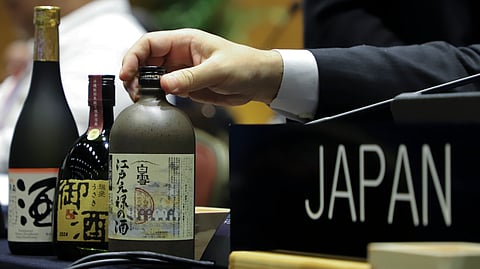
- LIFESTYLE
- FASHION
- FOOD
- ENTERTAINMENT
- EVENTS
- CULTURE
- VIDEOS
- WEB STORIES
- GALLERIES
- GADGETS
- CAR & BIKE
- SOCIETY
- TRAVEL
- NORTH EAST
- INDULGE CONNECT

Japan's iconic rice wine, sake, was added to UNESCO’s Intangible Cultural Heritage of Humanity list on Wednesday. Revered for its role in Japan’s culinary and cultural traditions, sake has been brewed for centuries and is integral to weddings, celebrations, and everyday gatherings in izakayas, the country’s cosy pubs.
The announcement was made during a UNESCO meeting in Luque, Paraguay, where 45 cultural practices were recognised, including Brazilian white cheese, Caribbean cassava bread, and Palestinian olive oil soap. Unlike the UNESCO World Heritage List, which highlights sites of global significance, the Intangible Cultural Heritage designation honours traditions and practices that enrich cultural identities.
Japanese ambassador to UNESCO, Takehiro Kano, expressed pride in the recognition, calling sake a “divine gift” essential to Japan’s social and cultural life. The craft of sake-making involves a meticulous two-month process of steaming, fermenting, and pressing rice, water, yeast, and koji mould. Only rice grown in Japan can be used for the authentic brew, tying sake deeply to the nation’s cultural heritage.
Dating back over 1,000 years, sake’s historical significance is evident in its mention in The Tale of Genji, an 11th-century Japanese novel where it was the drink of choice in the refined Heian court.
According to reports, officials hope the UNESCO designation will reinvigorate interest in sake, particularly among younger Japanese, who are increasingly opting for imported wines, beer, and whiskey. Prime Minister Shigeru Ishiba celebrated the honour, applauding those who have preserved this ancient tradition, stated sources.
Sake exports have grown globally, now earning over USD 265 million annually, driven by demand in the US and China. Following the announcement, Kano celebrated in classic Japanese fashion, raising a cypress box of sake to toast the timeless beverage and its newly recognised cultural importance.